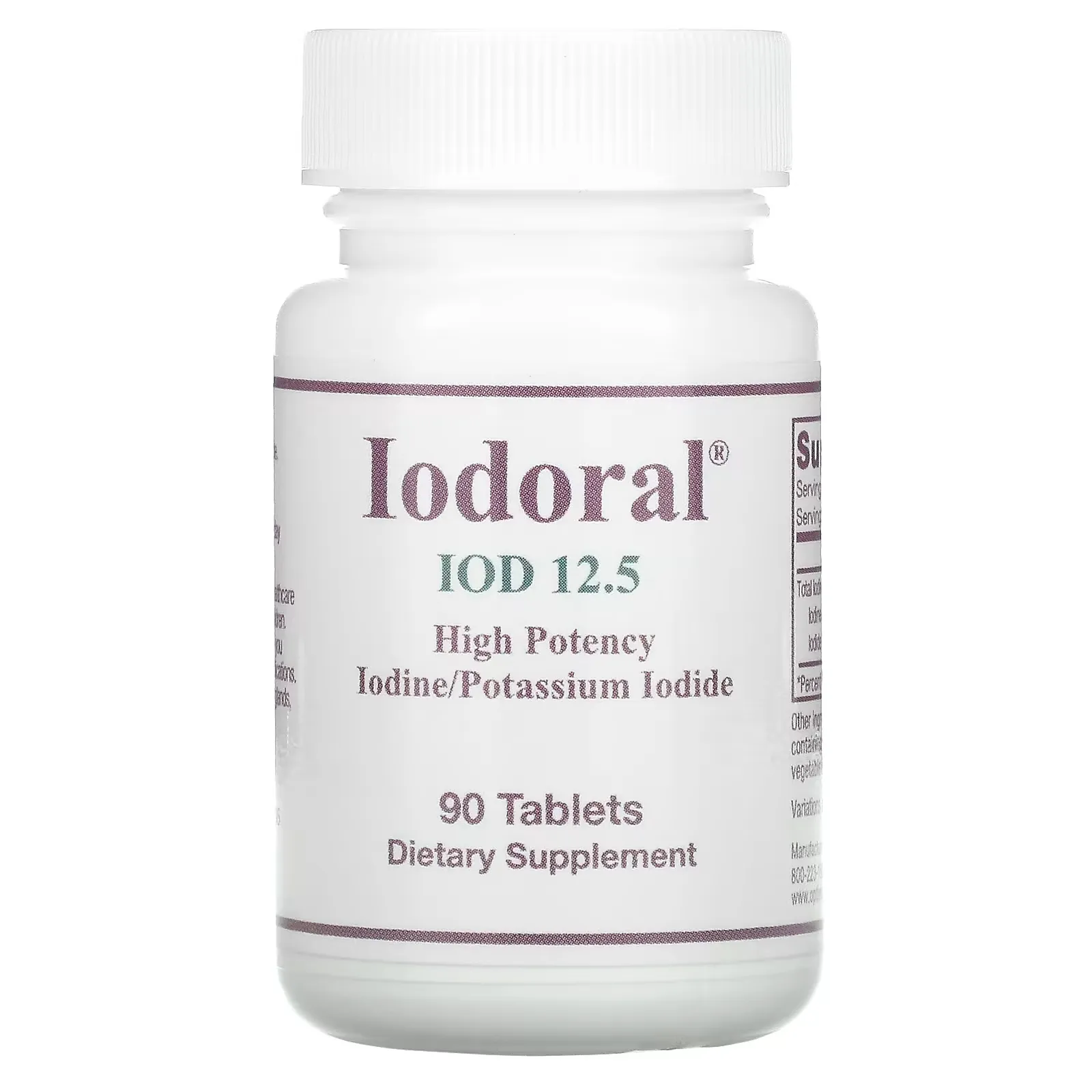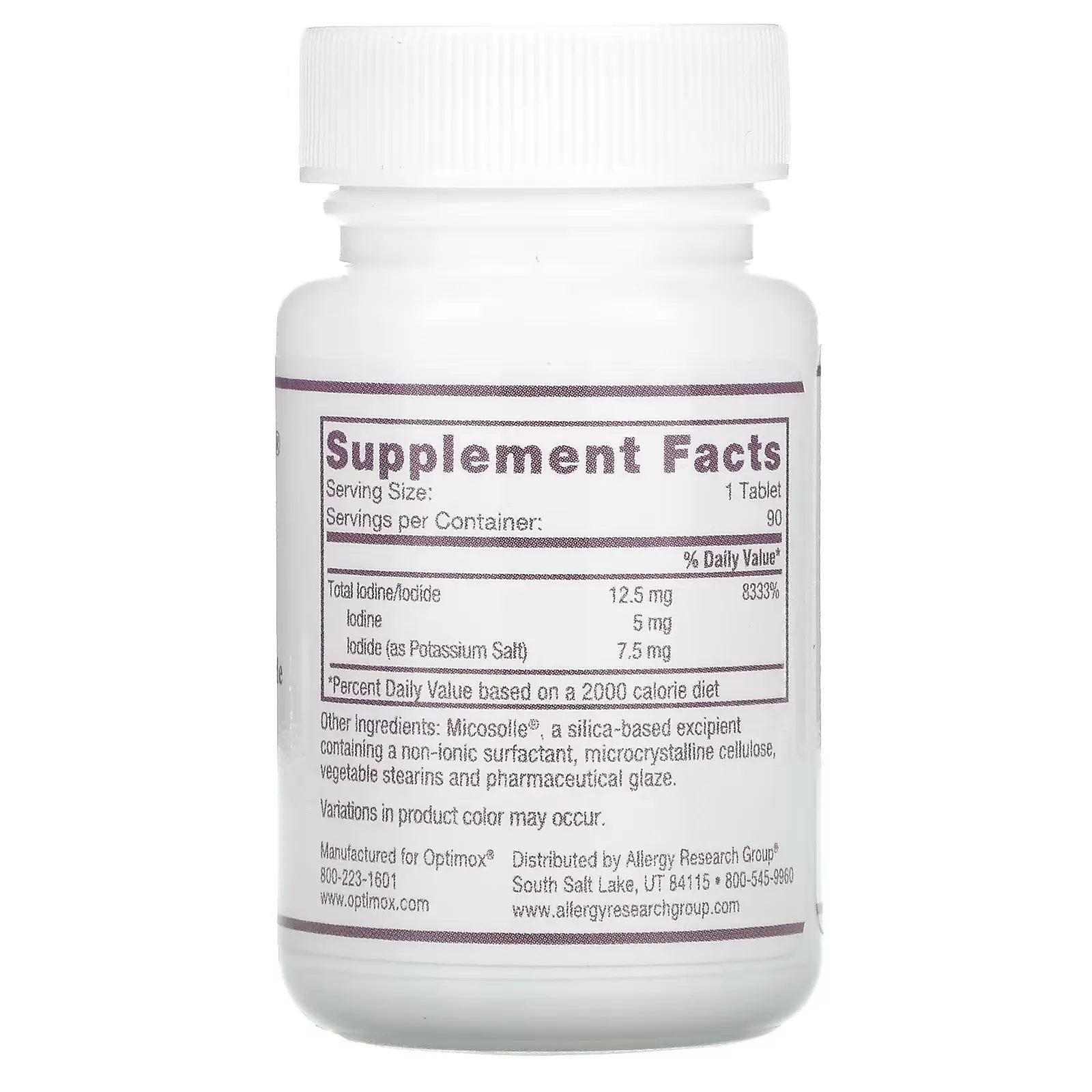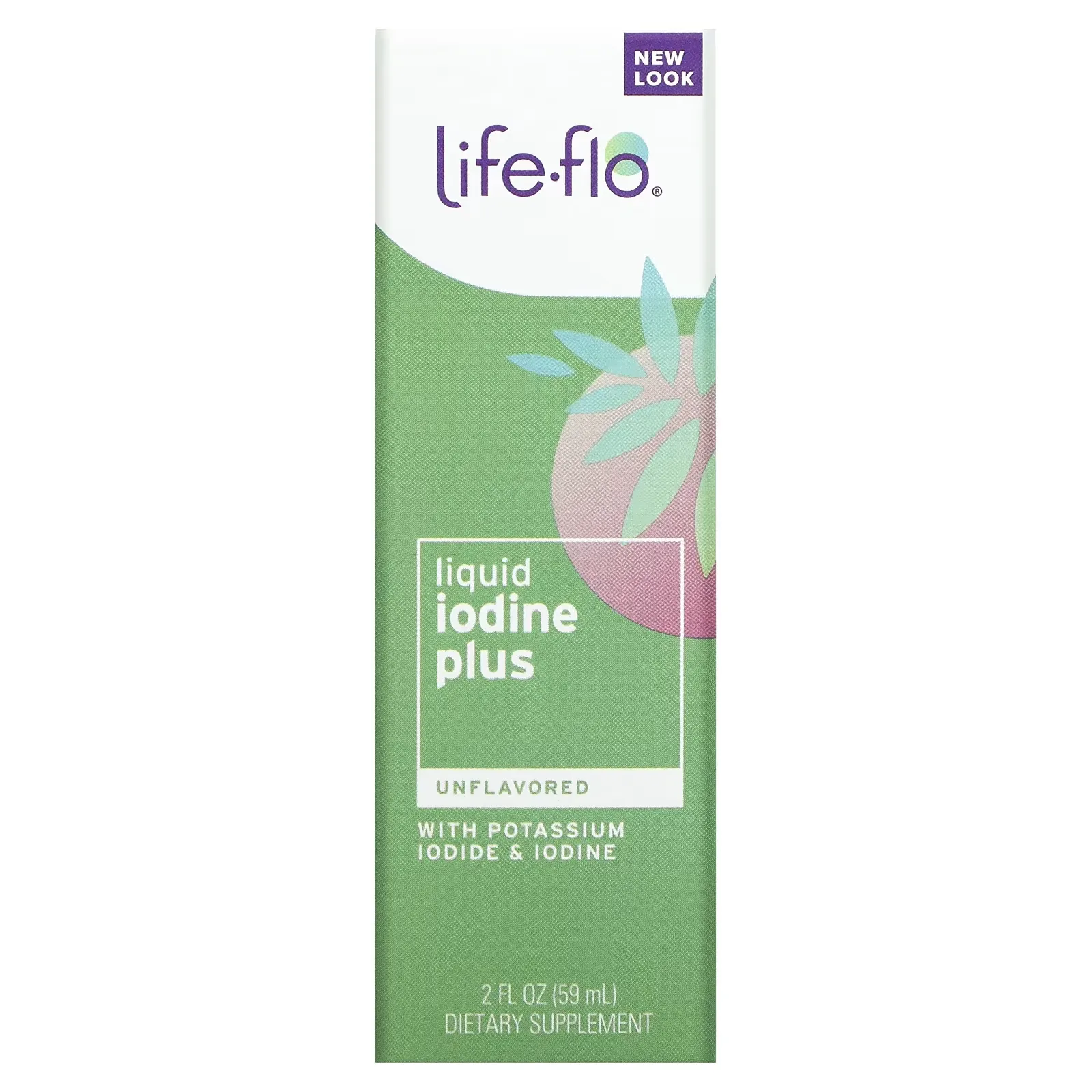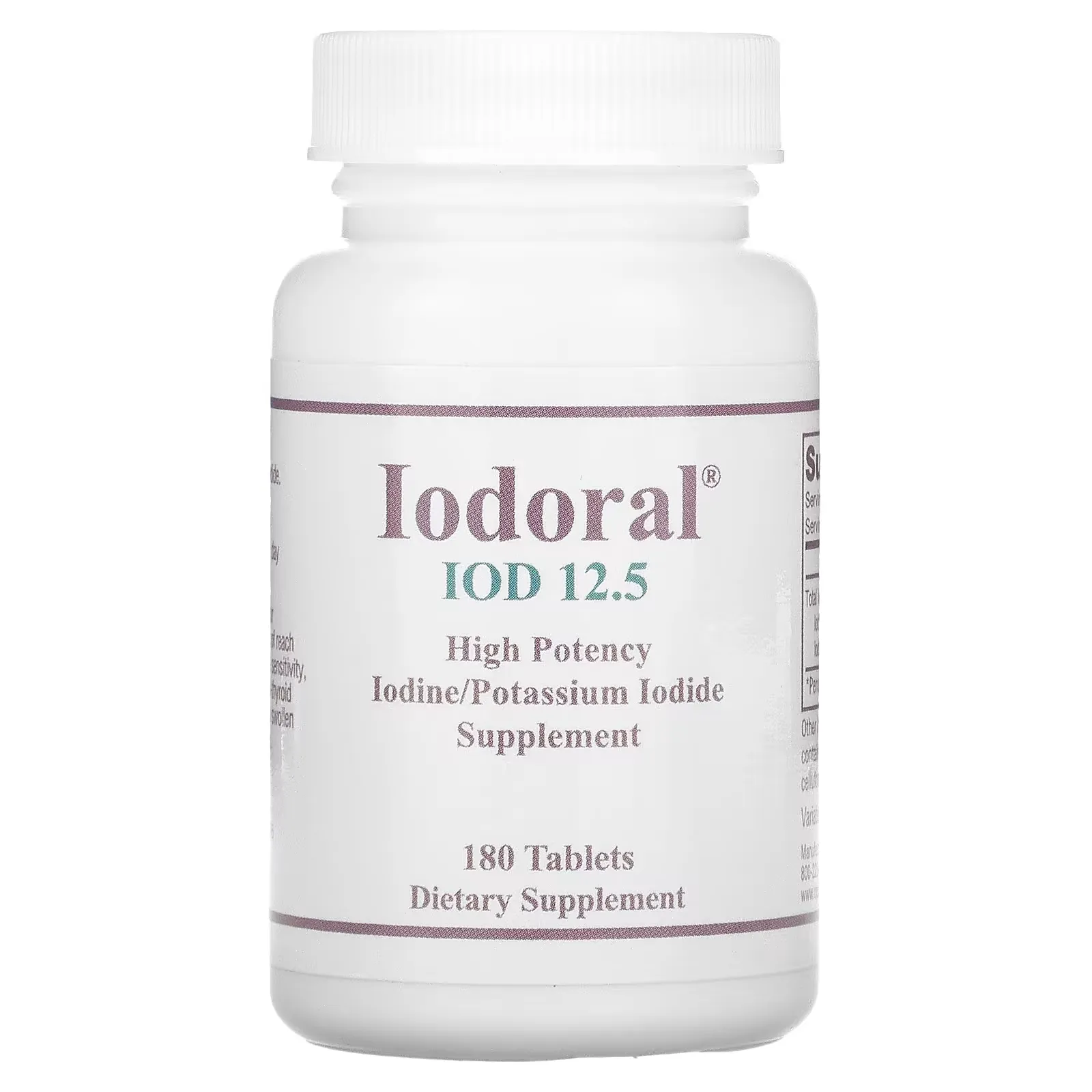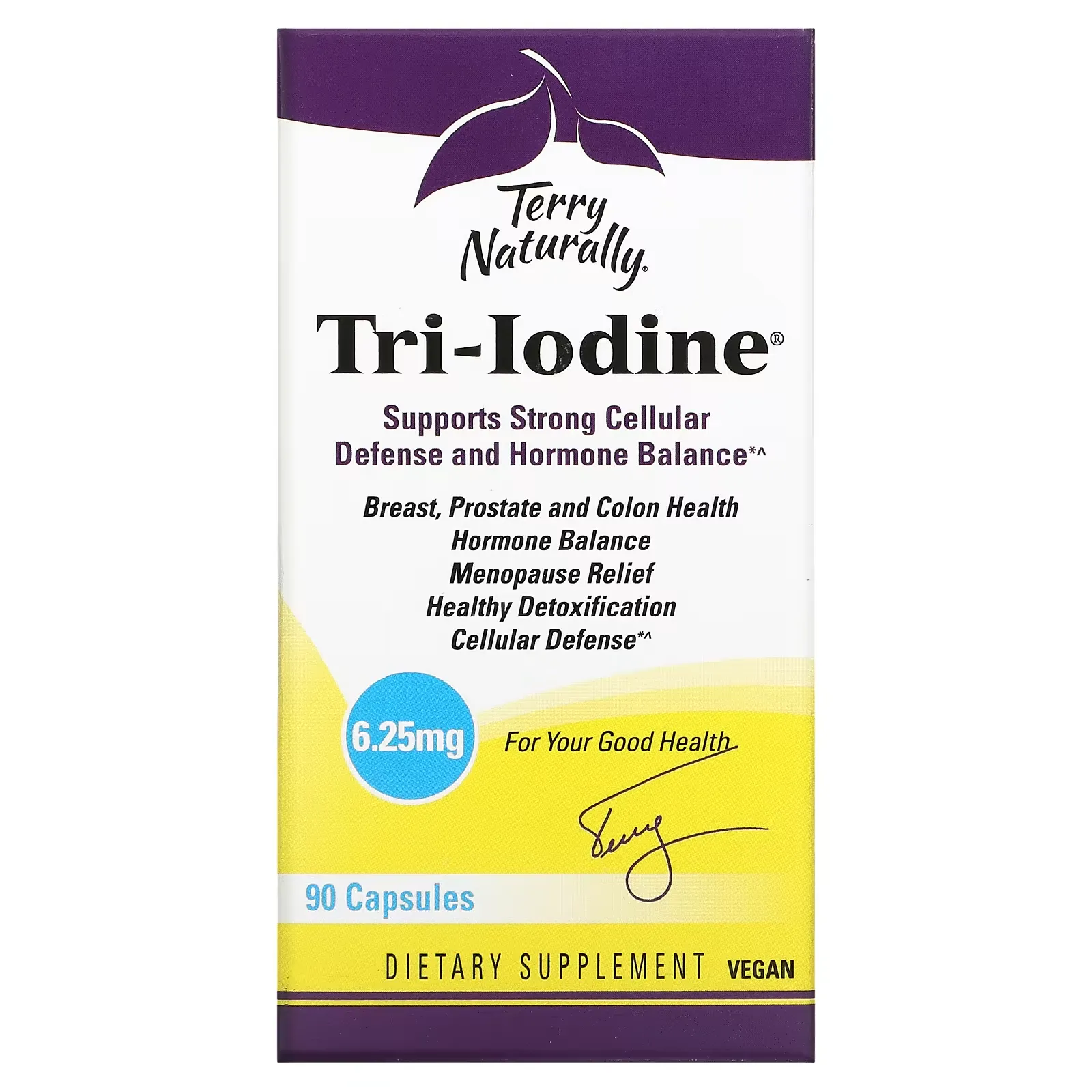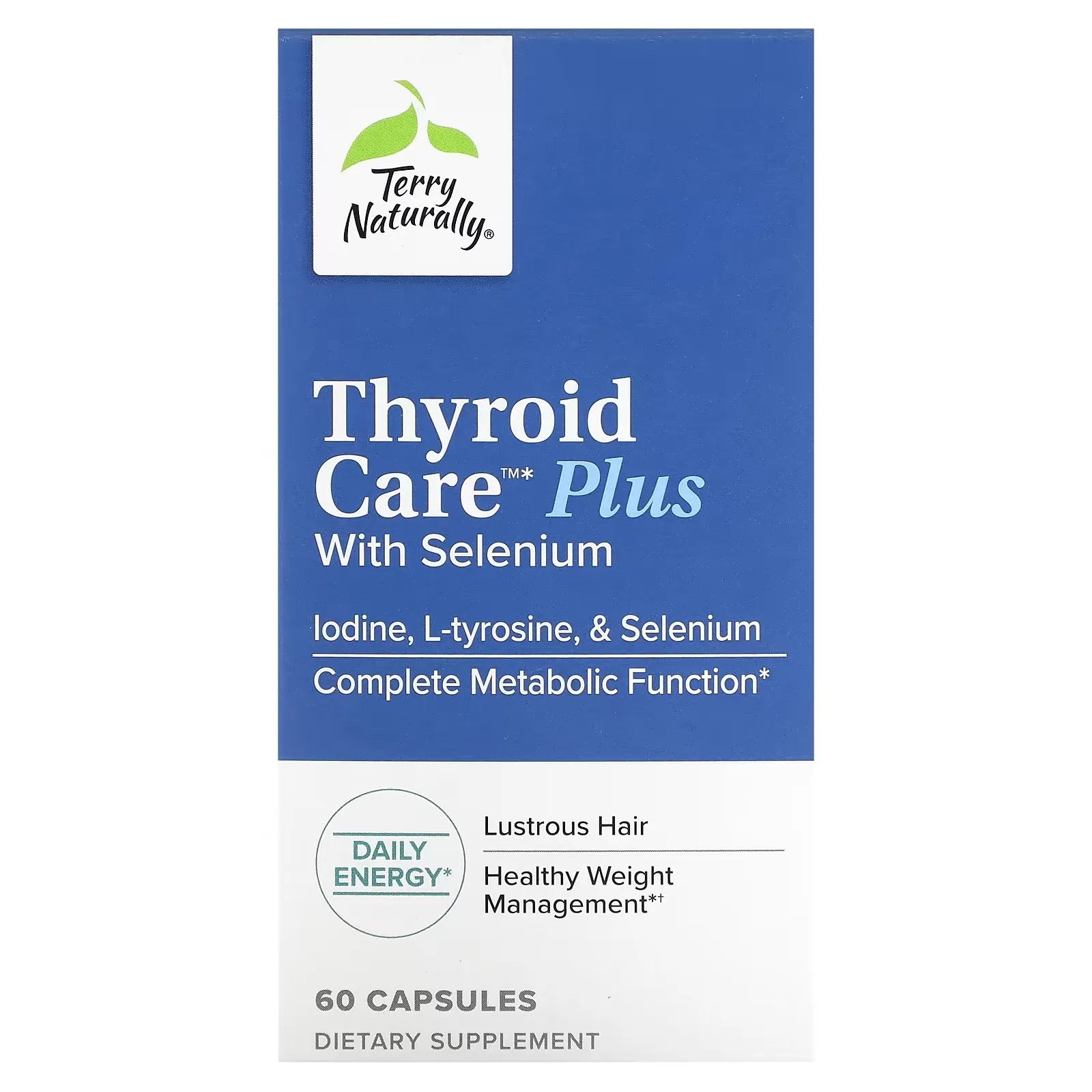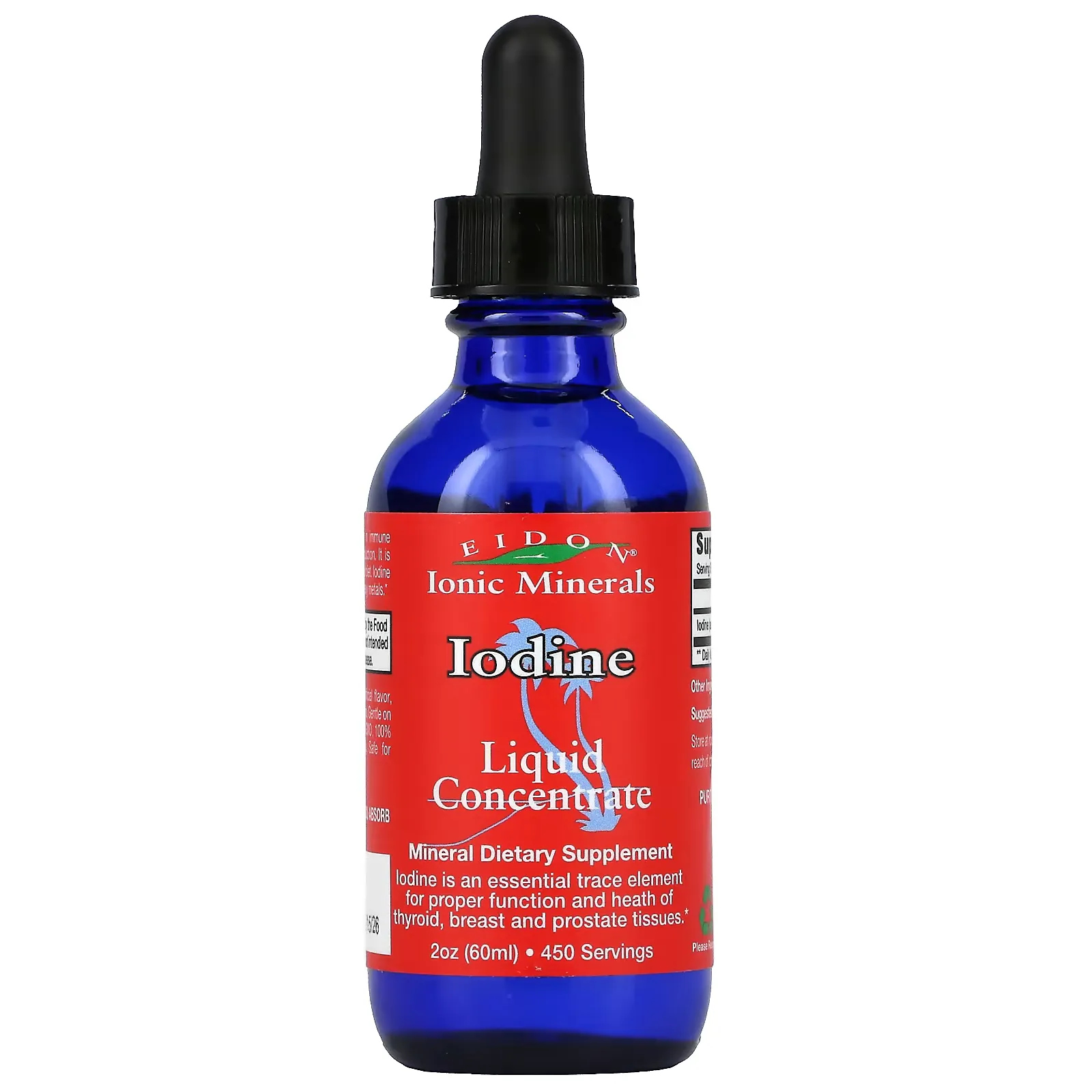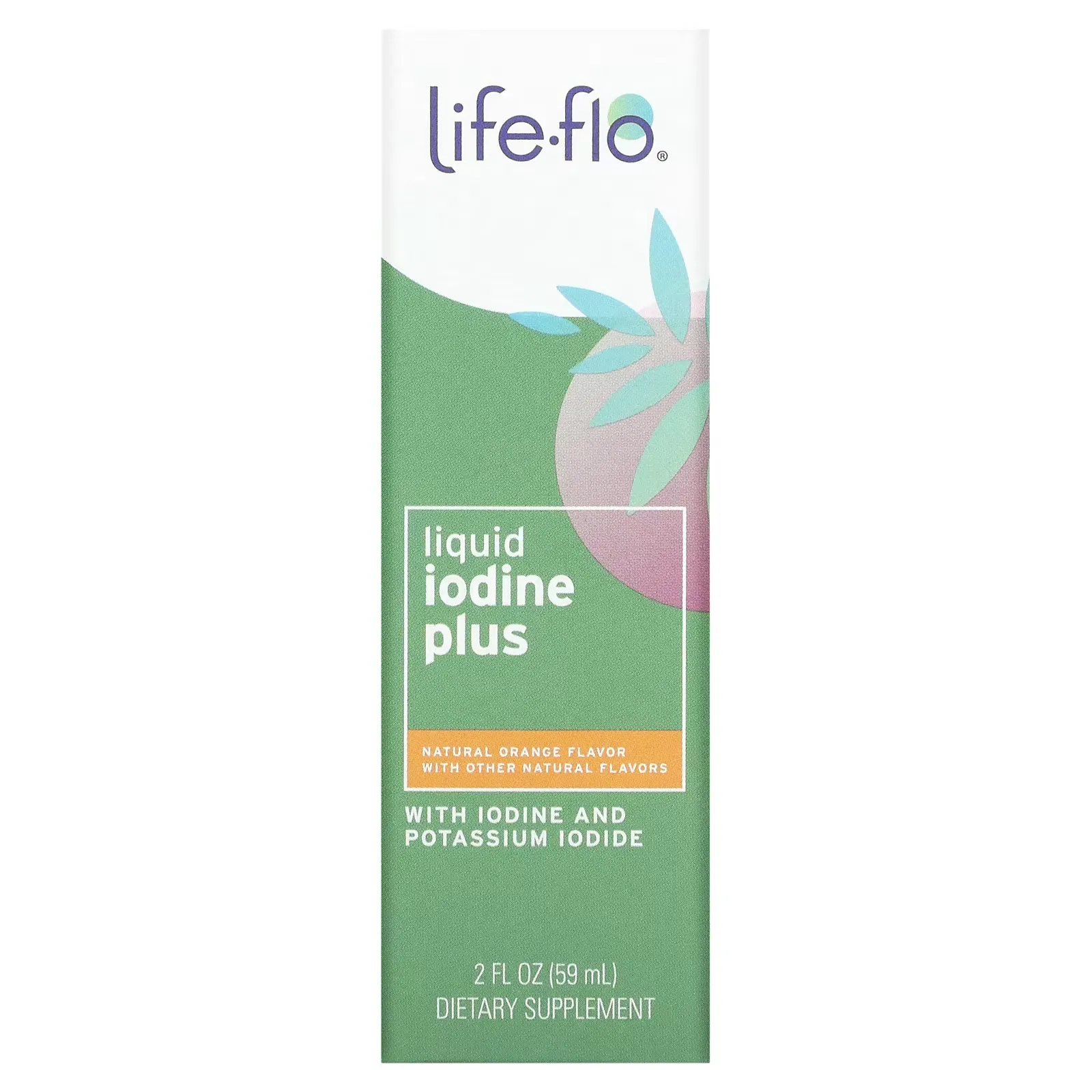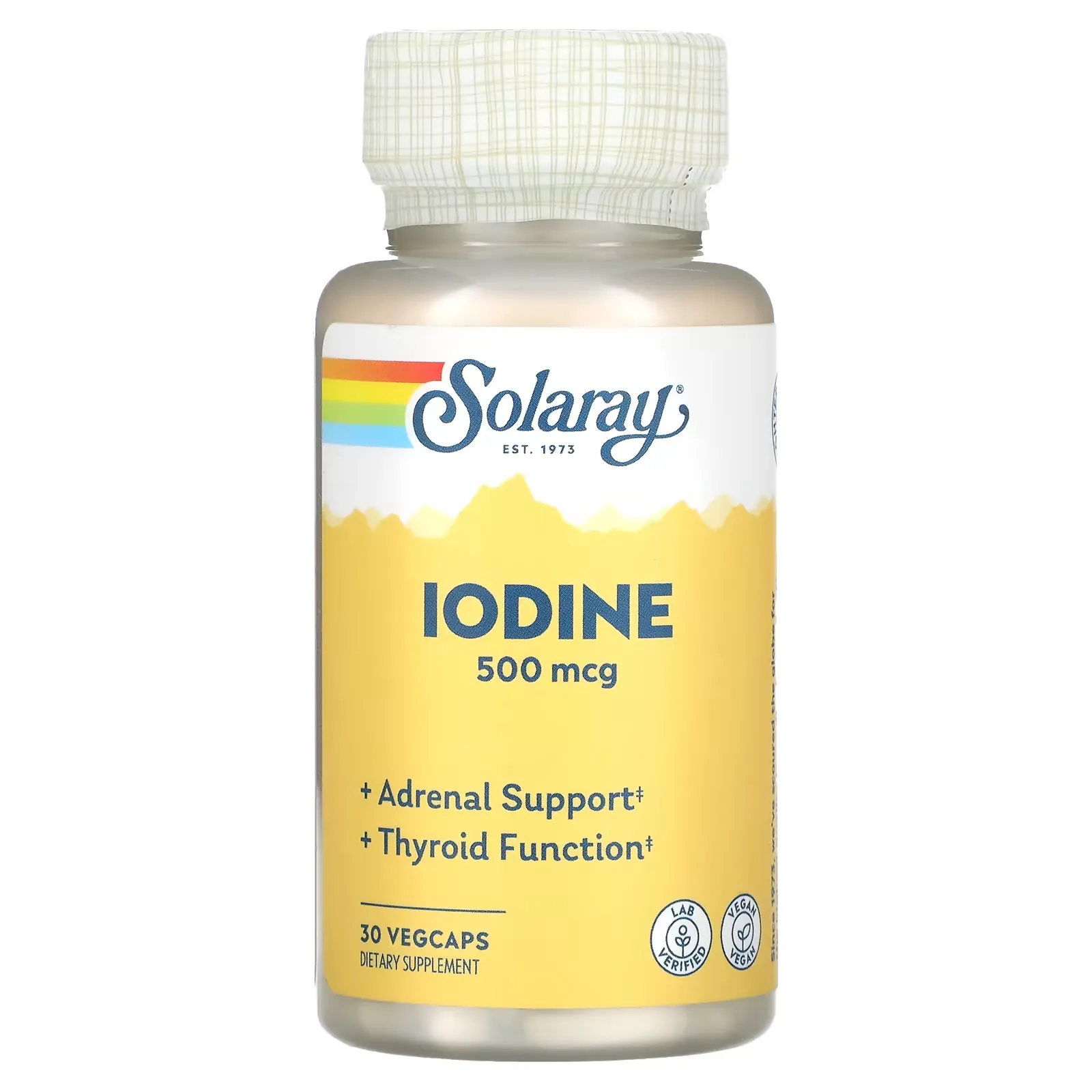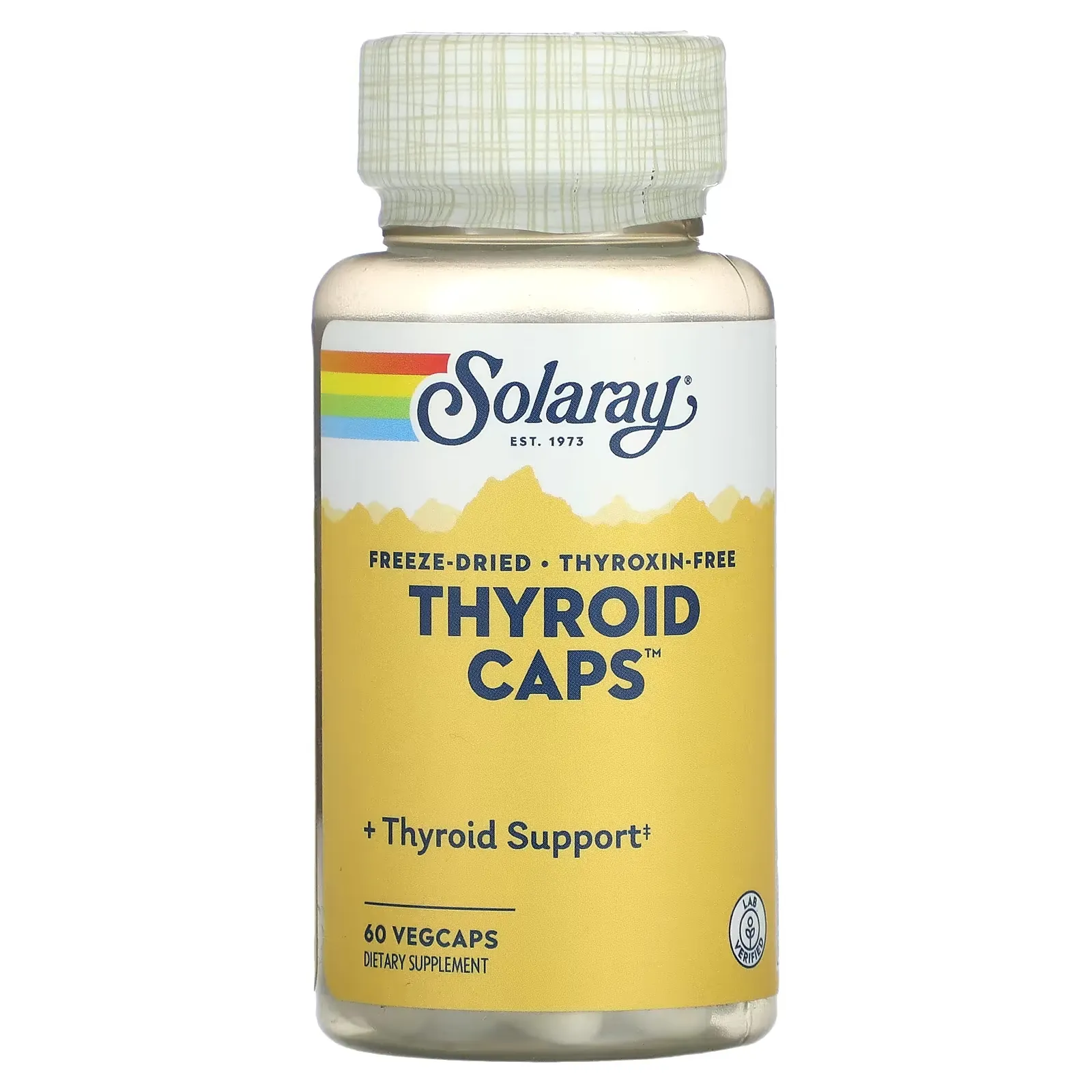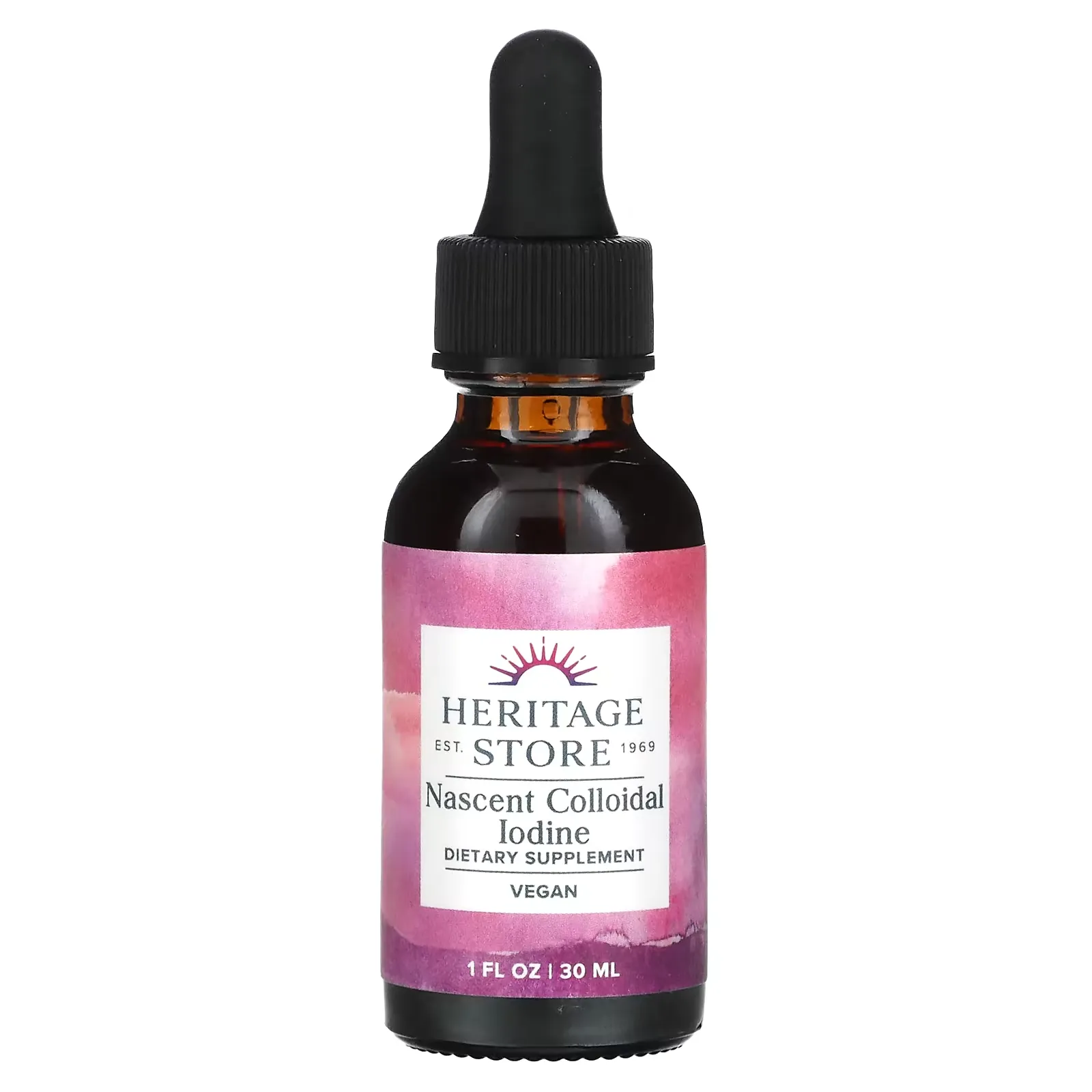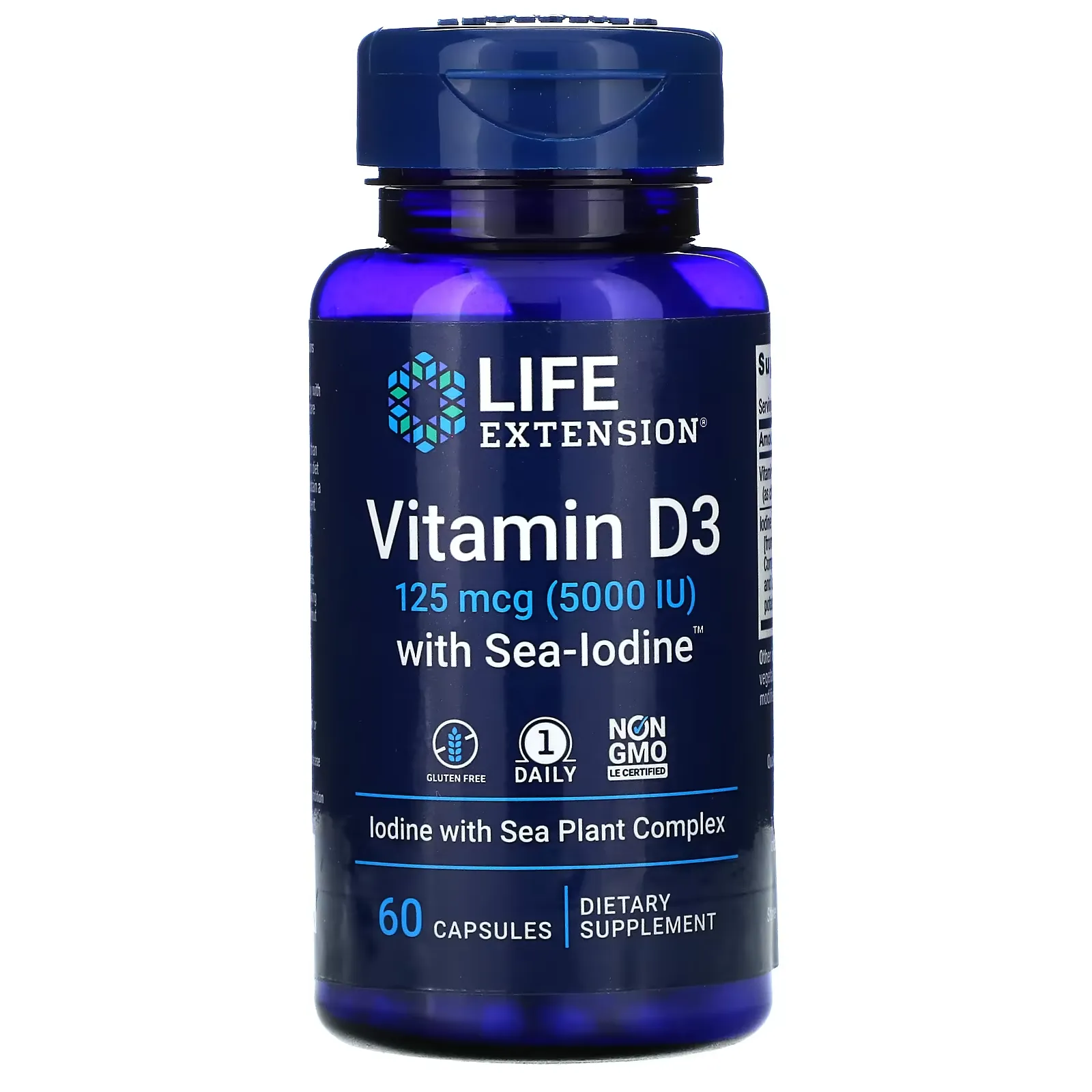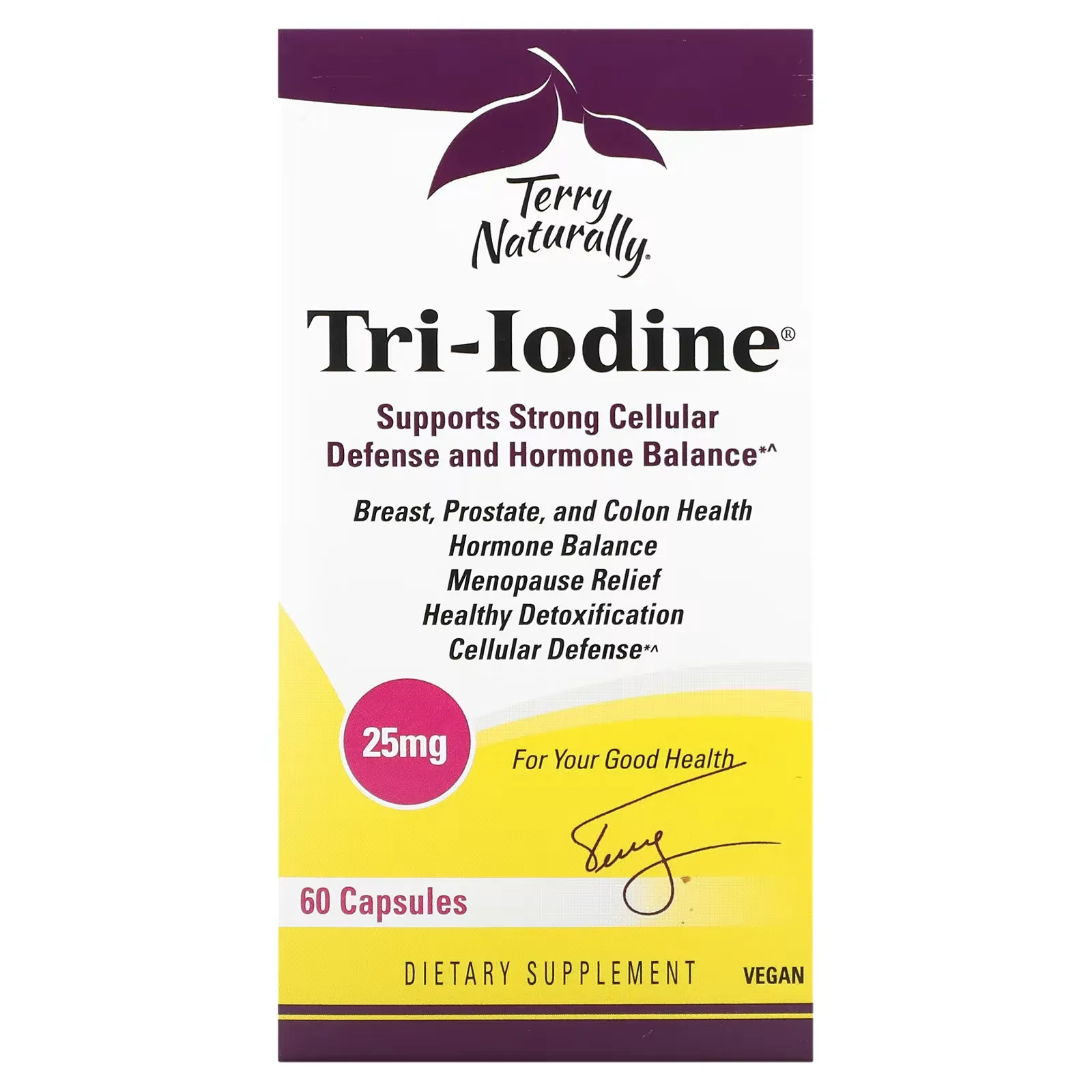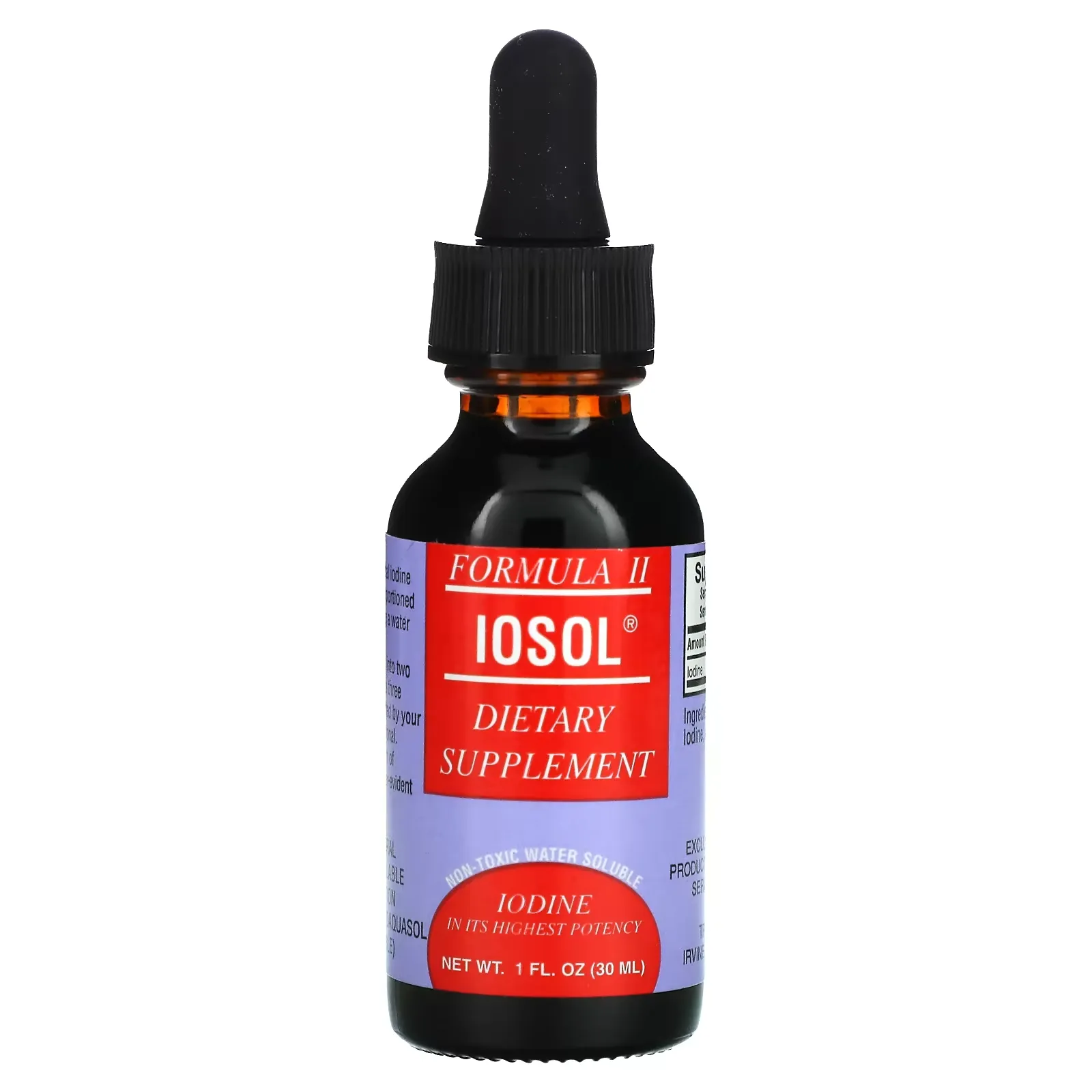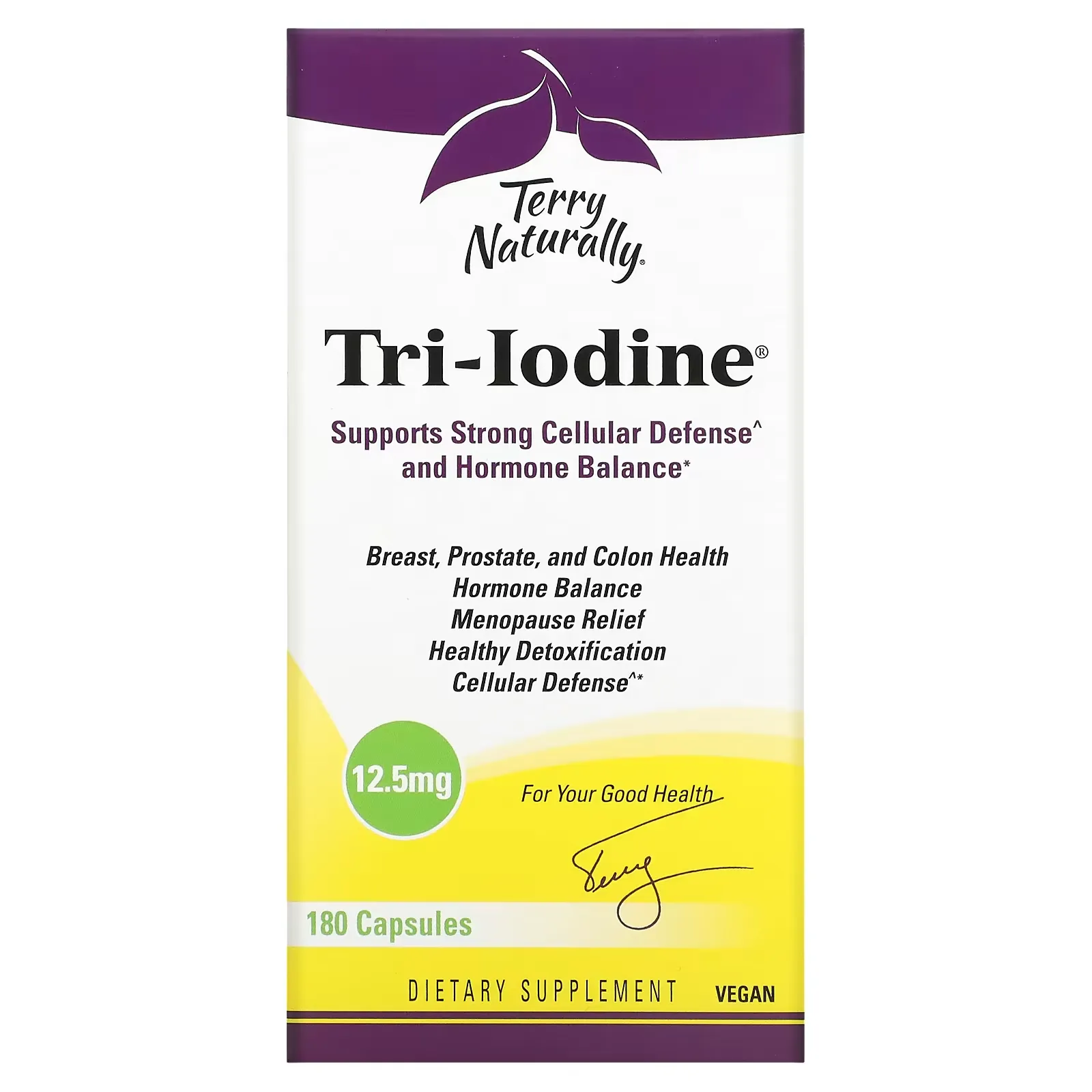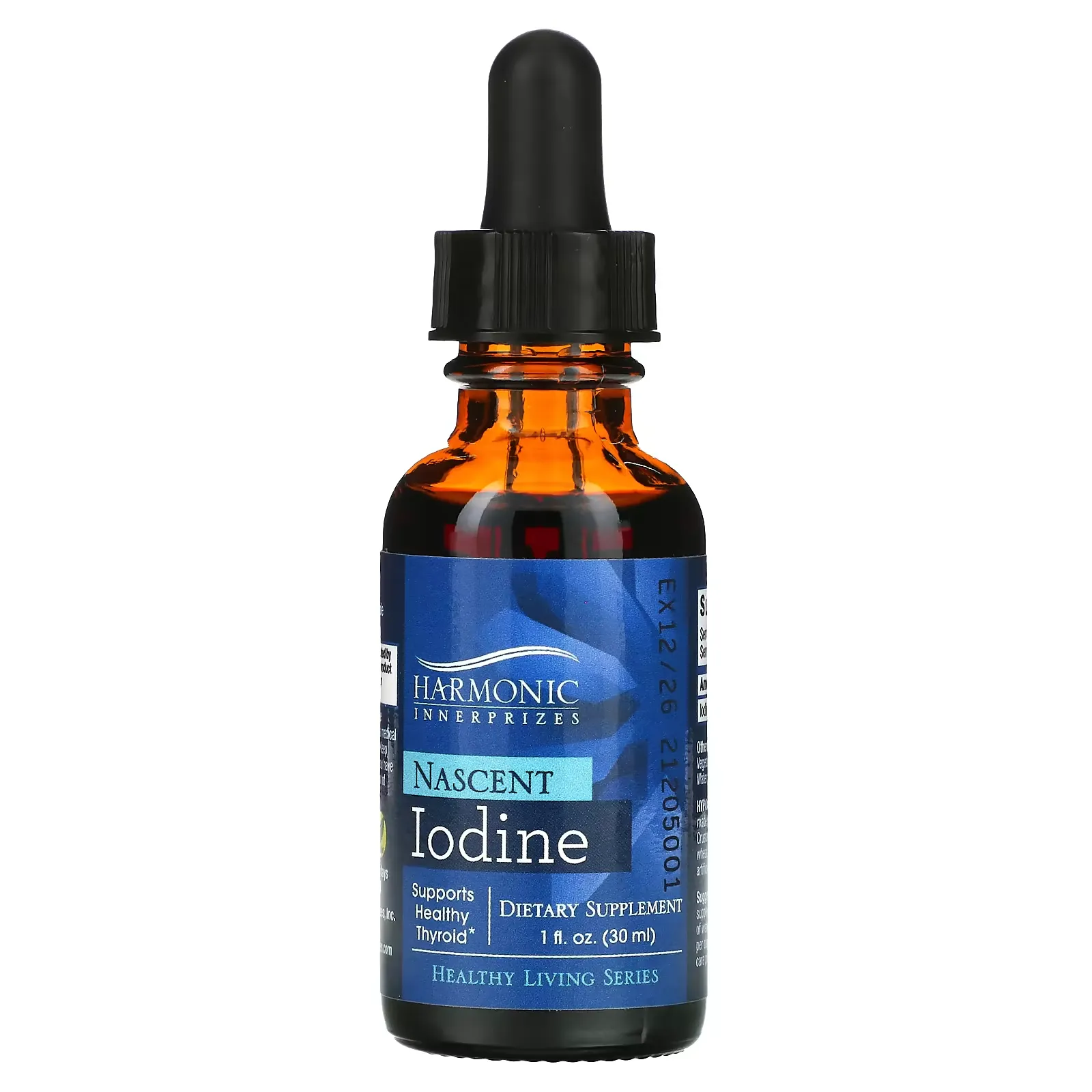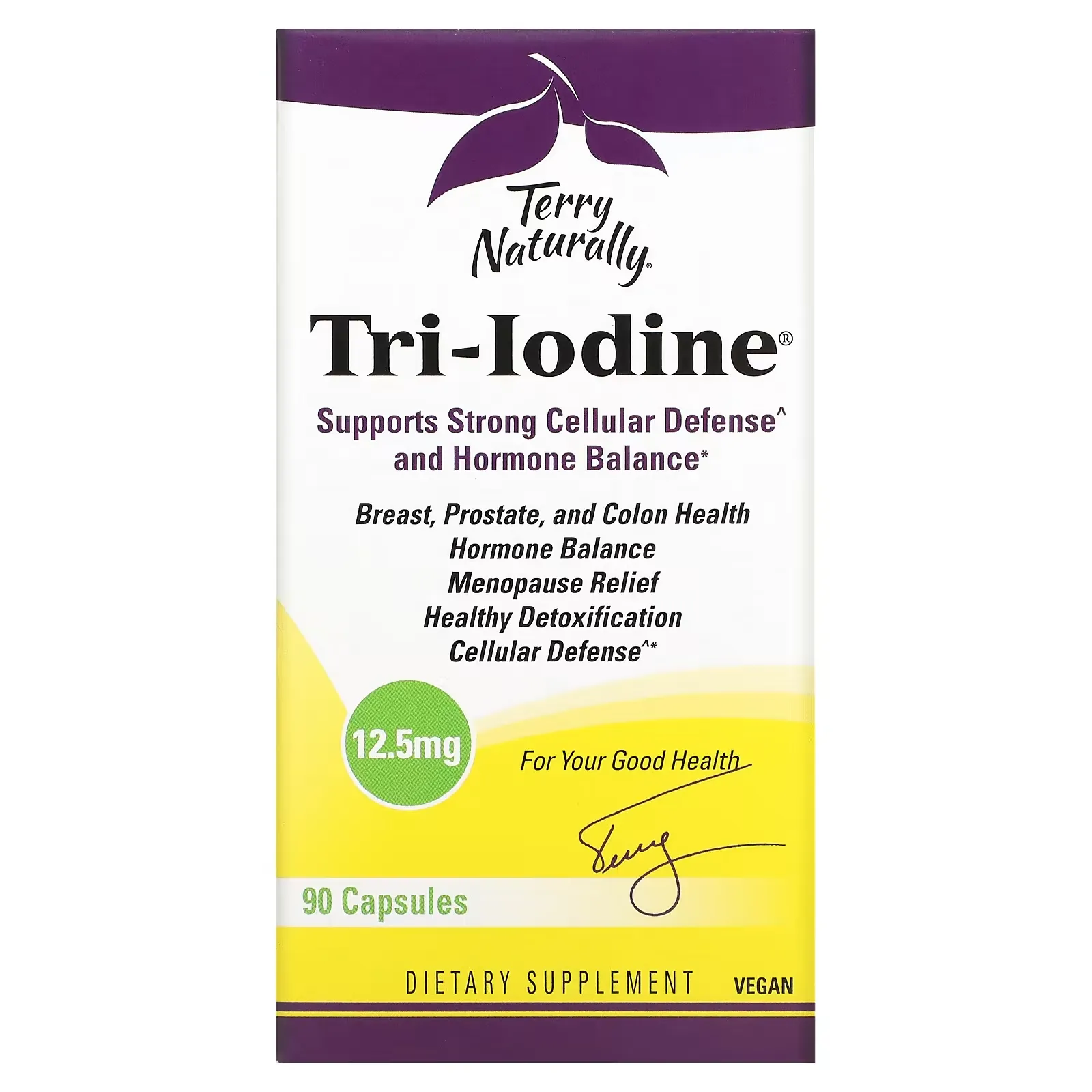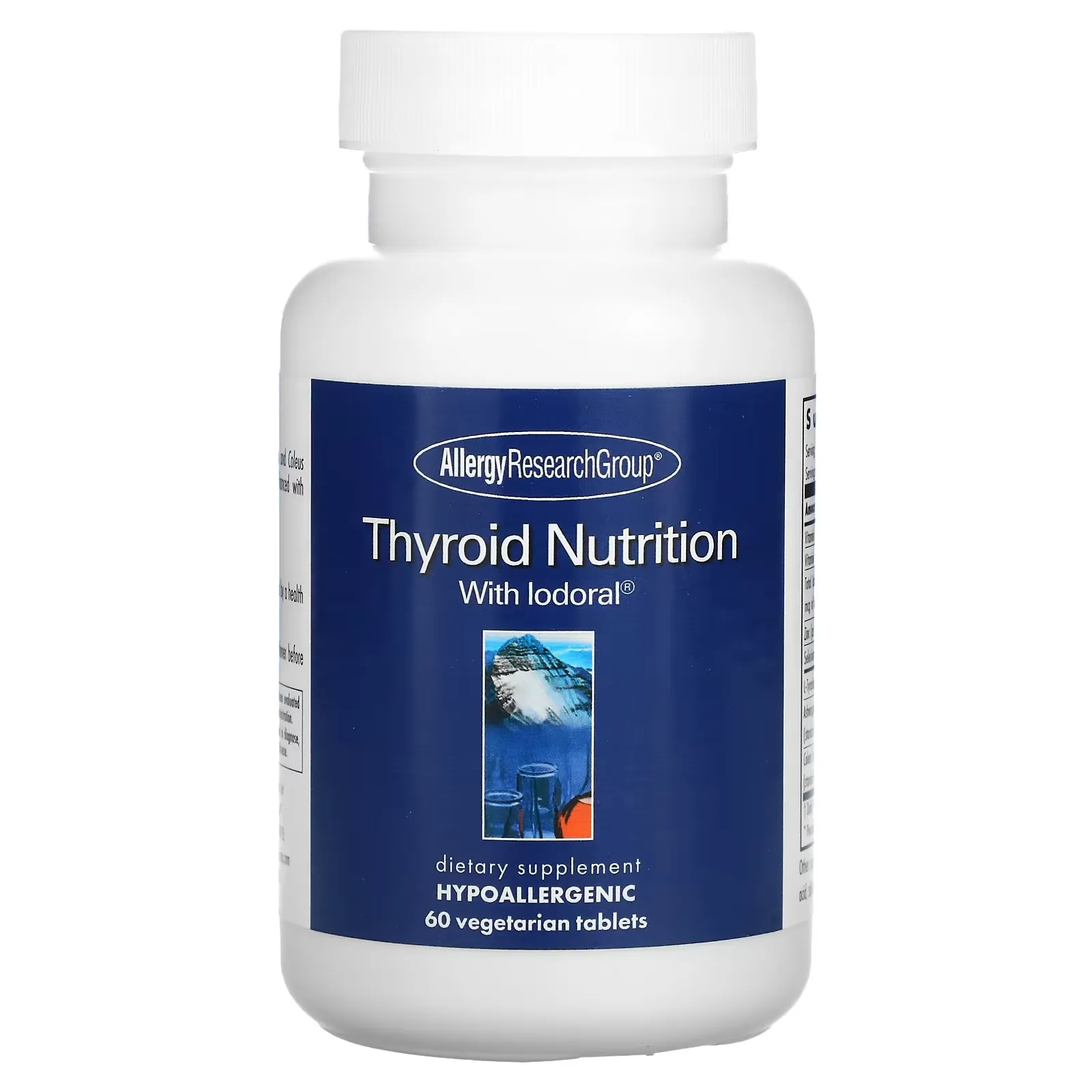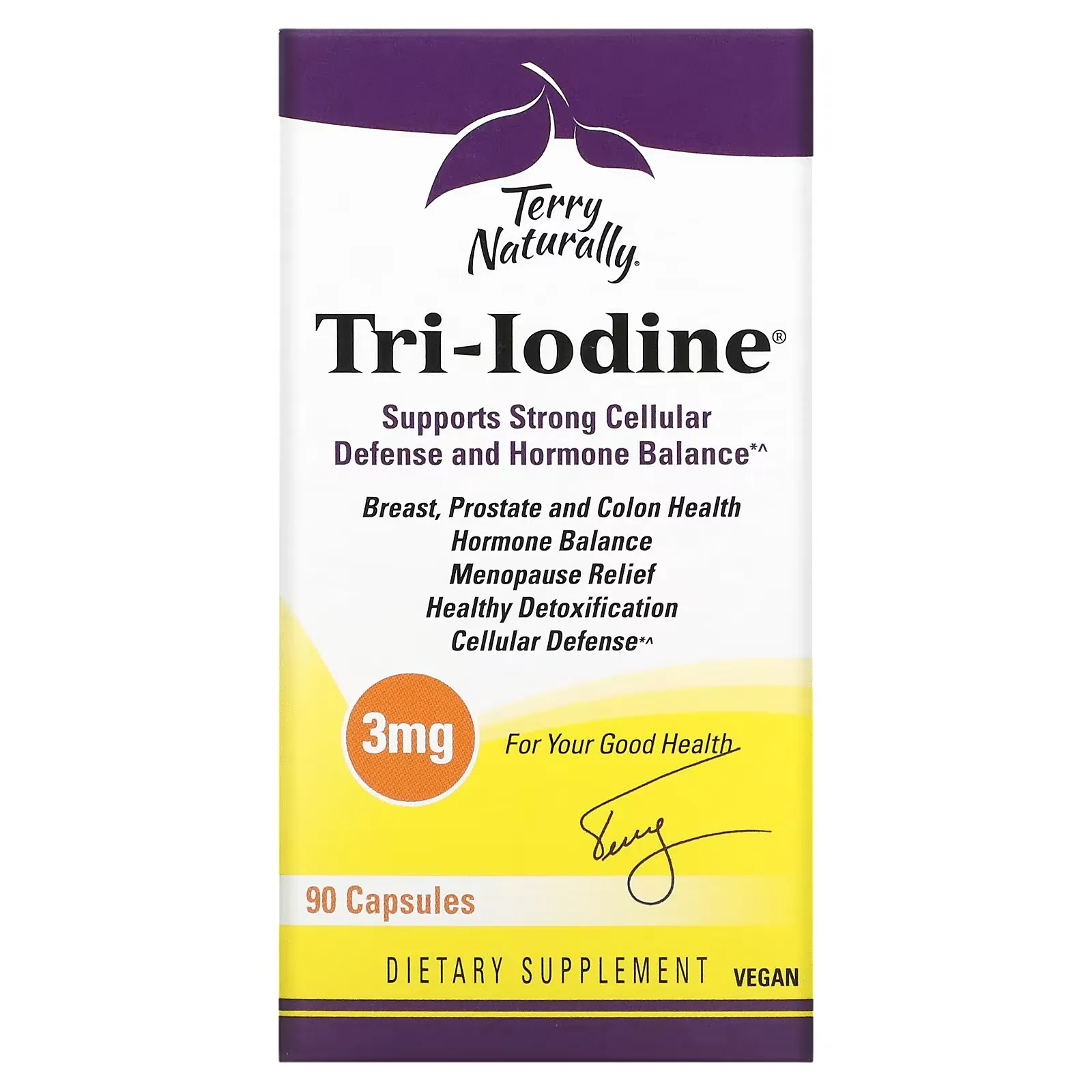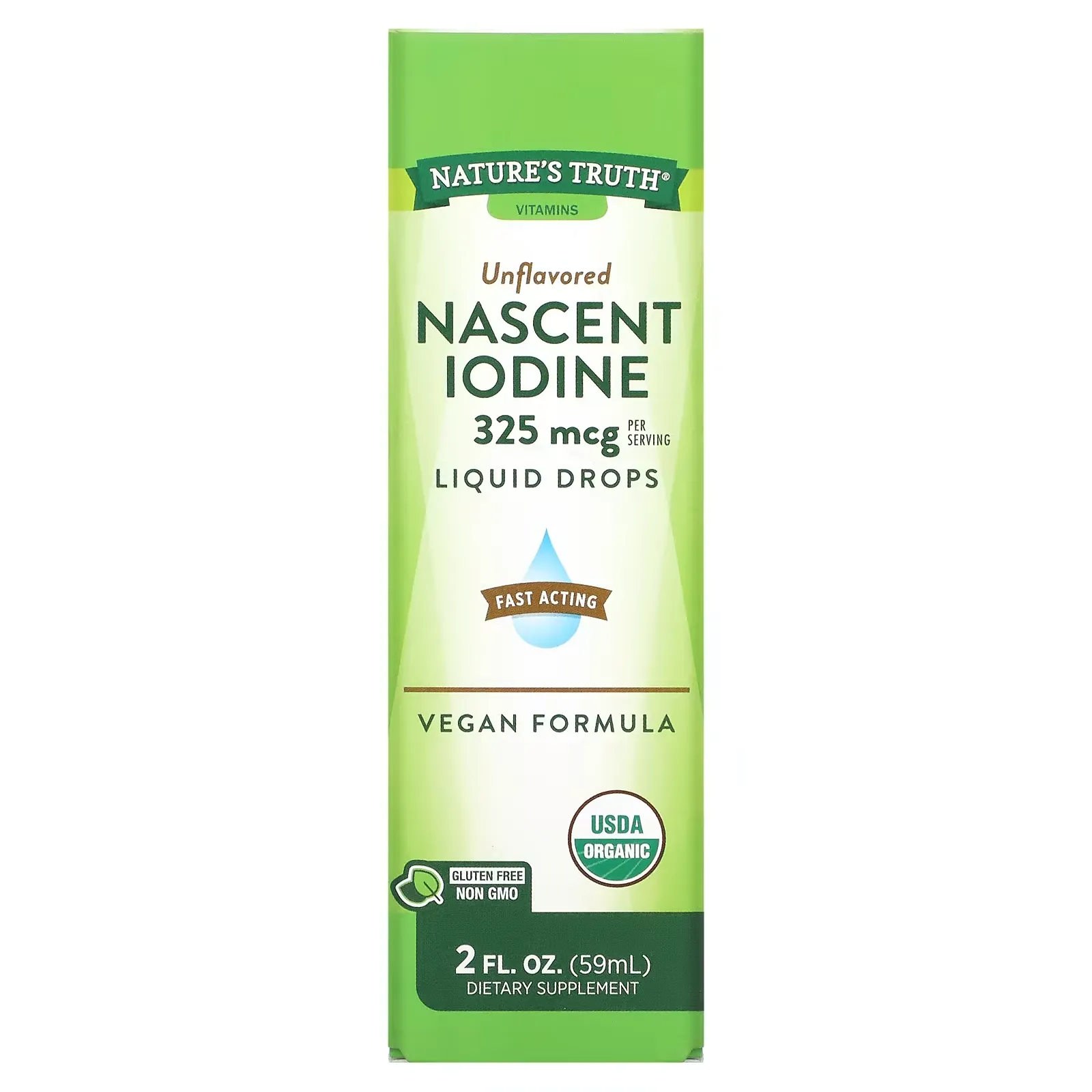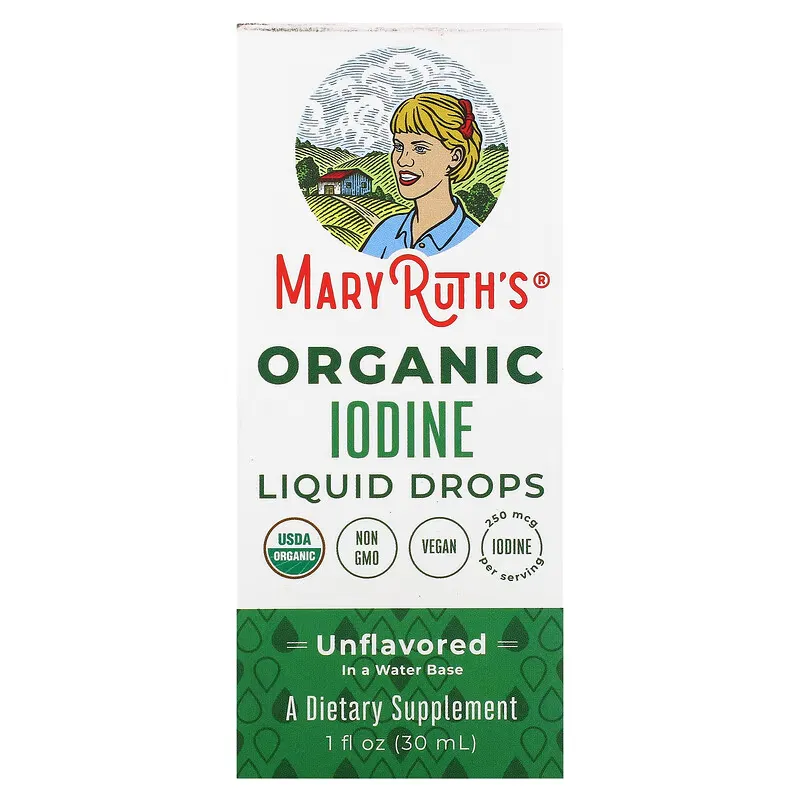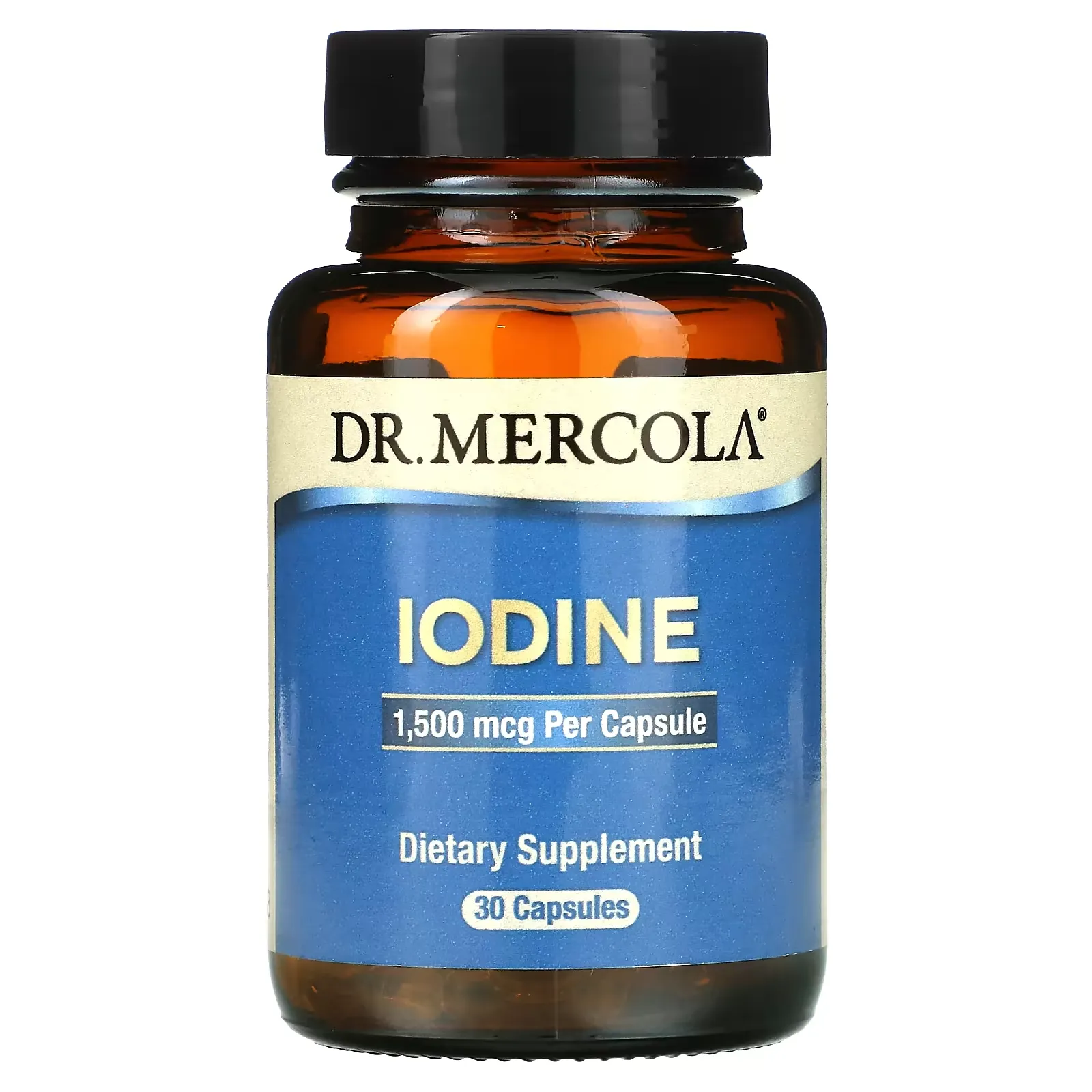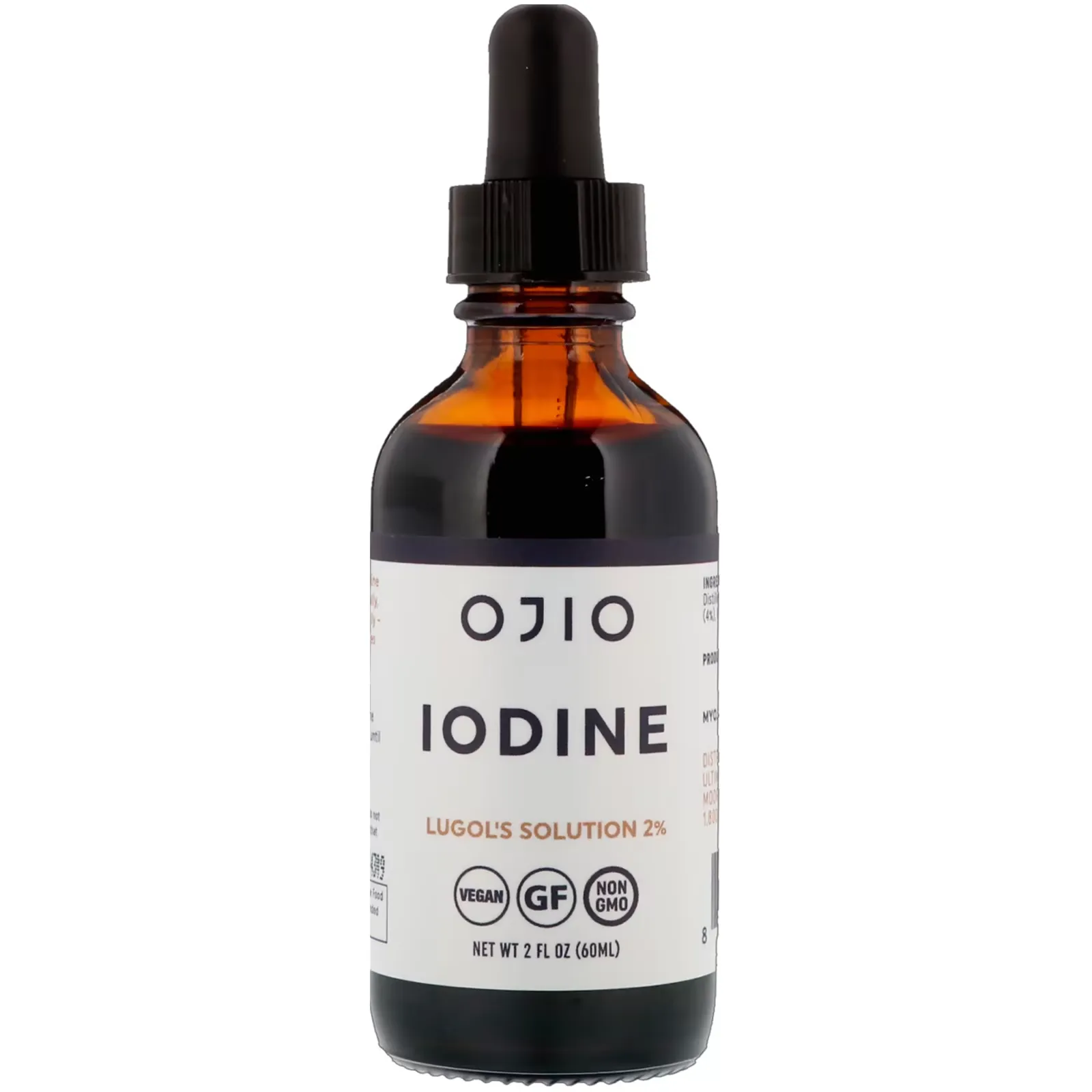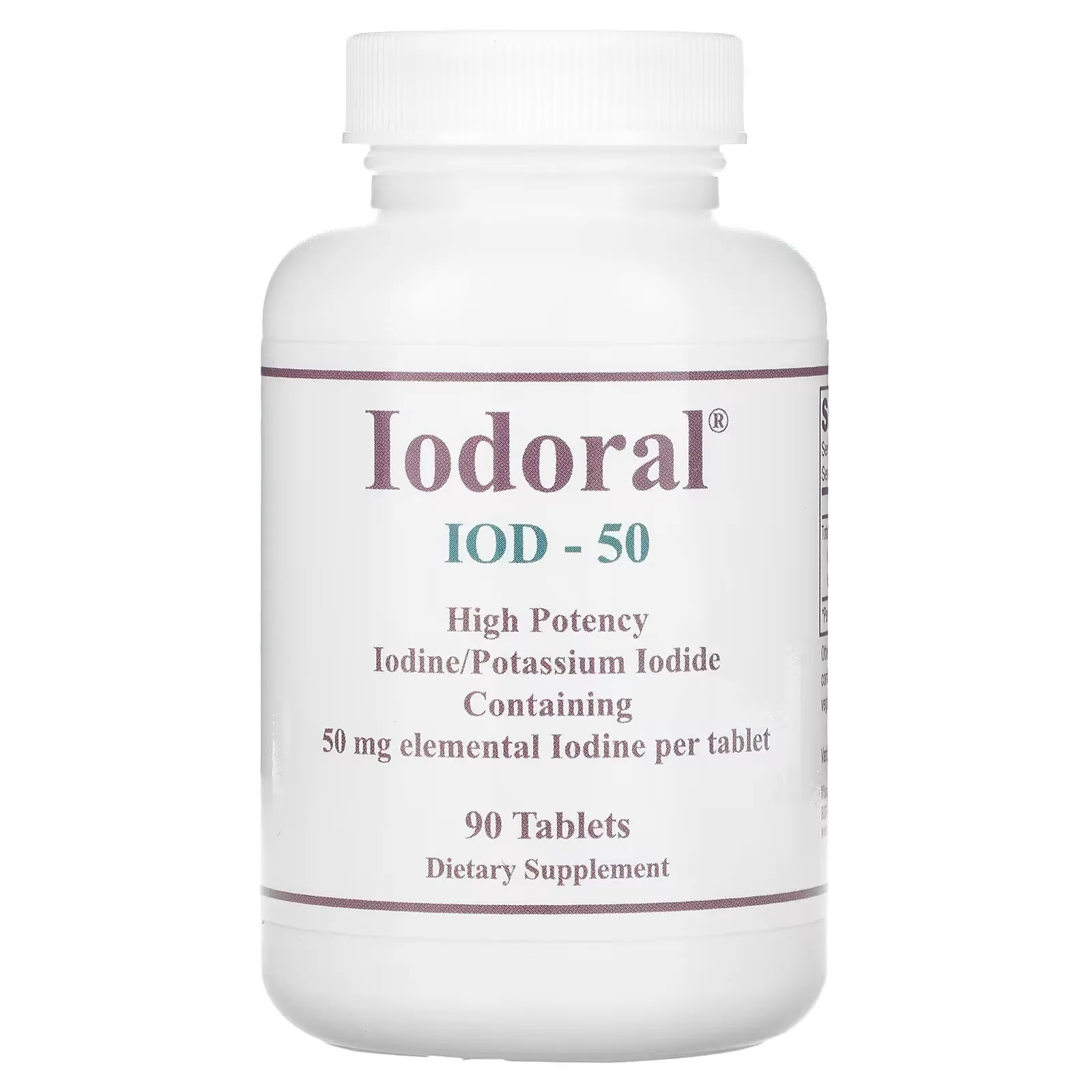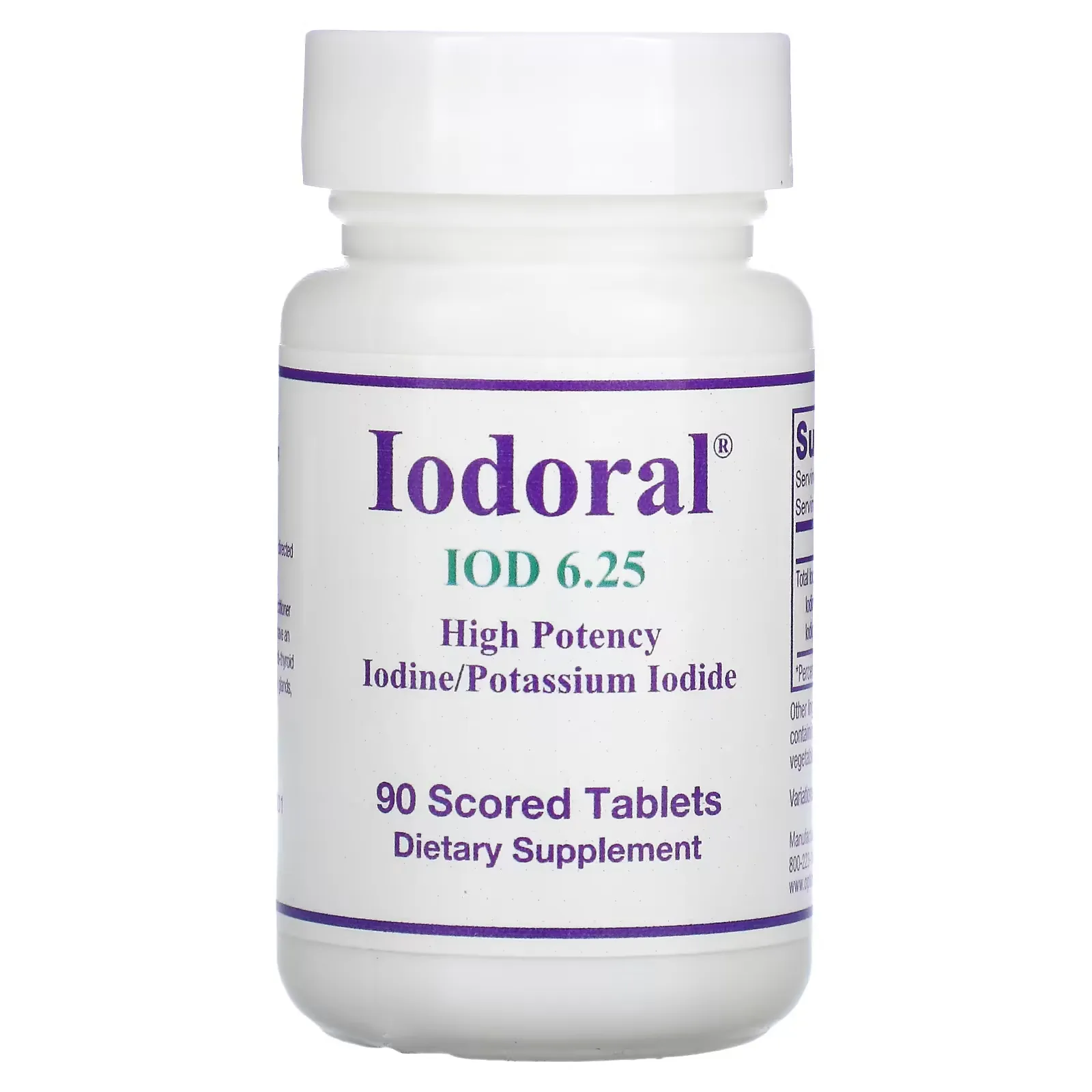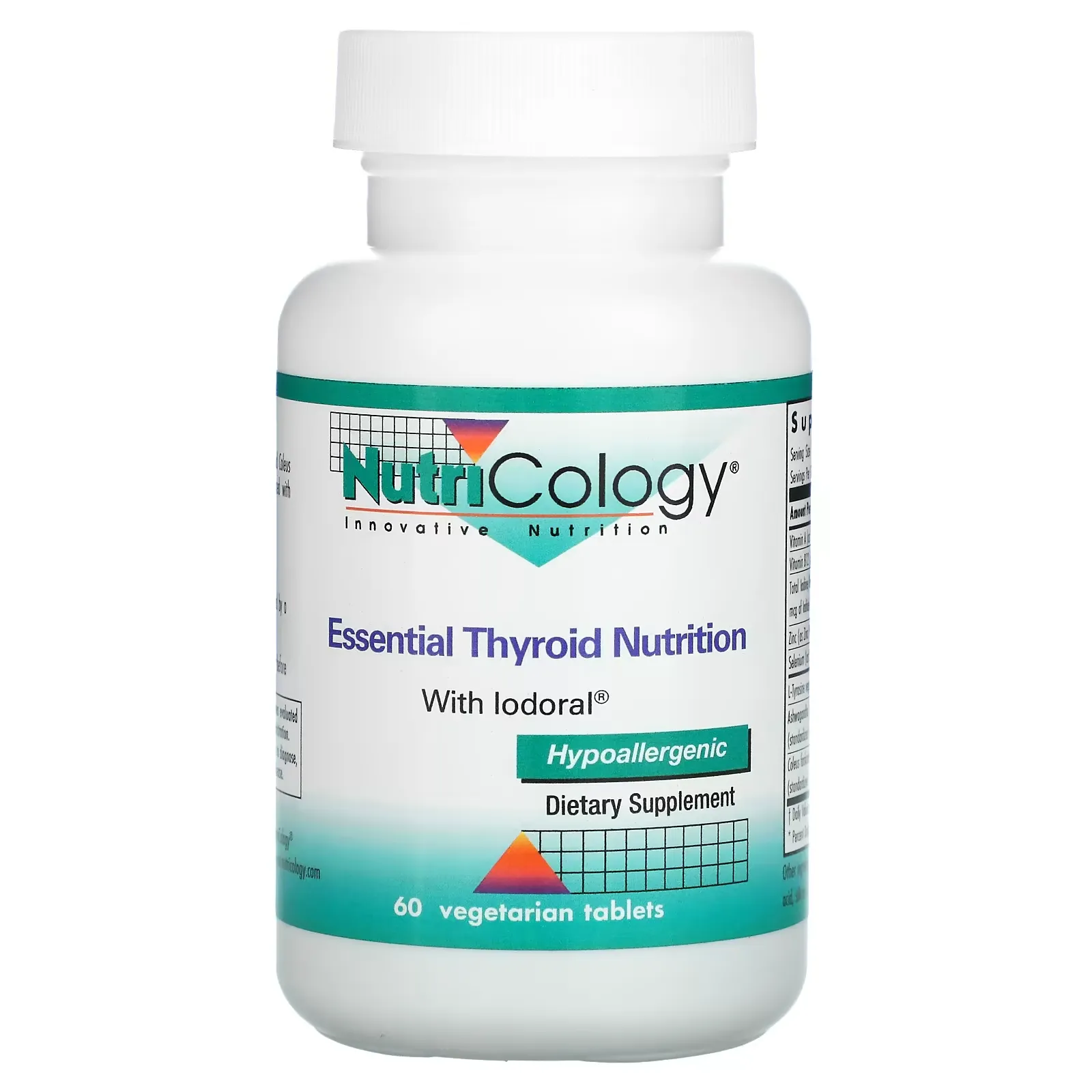Ingredients
Micoselle®, a silica-based excipient containing a non-ionic surfactant, microcrystalline cellulose, vegetable stearins and pharmaceutical glaze.
Supplement Facts
| Supplement Facts | ||
| Serving Size: 1 Tablet | ||
| Servings Per Container: 90 | ||
| Amount Per Serving | % Daily Value* | |
| Total Iodine/Iodide | 12.5 mg | 8333% |
| Iodine | 5 mg | |
| Iodide (as Potassium Salt) | 7.5 mg | |
| * Percent Daily Value based on a 2000 calorie diet | ||
Warnings
If pregnant or nursing, consult your healthcare practitioner before use. Keep out of reach of children. Do not use if you have an iodine sensitivity, or if you are taking anti-hypertension or anti-thyroid medications. Discontinue use if you develop swollen salivary glands. Stomach upset, or skin rash.
Store in a cool, dry and dark place. Variations in product color may occur.
Dimensions
dimensions: 2.6 x 1.5 x 1.5 indimensionsIn: 2.6 x 1.5 x 1.5 in
dimensionsCm: 6.6 x 3.8 x 3.8 cm
Weight
weight: 0.1 lbweightLb: 0.1 lb
weightKg: 0.05 kg
- High Potency
Provides Iodine as Iodine and Potassium Iodide.
High Potency Iodine/Potassium Iodide Supplement
Iodoral is a tablet form of Lugol solution. One 12.5 mg tablet of Iodoral® supplies an amount of total elemental iodine comparable to the average daily intake of this essential element by mainland Japanese.
General Information
Iodine is an essential element. Although its main function is in the production of thyroid hormones by the thyroid gland, other organs in the body have a need for iodine in order to function normally.
Several studies have demonstrated a need for iodine intake. The minimum amount of iodine determined in these studies is equivalent to 0.1 mg/kg body weight/day. For example, for a 50 kg woman, the daily amount of iodine would be 5 mg. The thyroid gland needs iodide to function properly. The original study done 80 years ago in adolescent girls used 9 mg iodide daily.
During the early 1900's, the iodine/iodide solution called Lugol solution was used extensively, effectively and safely in medical practice, for both low activity and above normal activity of the thyroid gland. The recommended daily intake for iodine supplementation was 2 to 6 drops of Lugol solution, providing 12.5 to 37.5 mg total iodide. That amount was mentioned as lately as 1995 in a book on Pharmaceutical Sciences.
Several investigators have shown convincing evidence for the need for adequate iodine intake. Japanese women living in Japan consumed a daily average of 13.8 mg total elemental iodine and some research suggests this is an important factor for their relative health. In the 1960's, one slice of bread in the USA contained the full RDA of 0.15 mg iodine. Over the last 2 decades, iodine was replaced by bromine in the bread making process. Bromine may block thyroid function and may interfere with iodine in the body.

